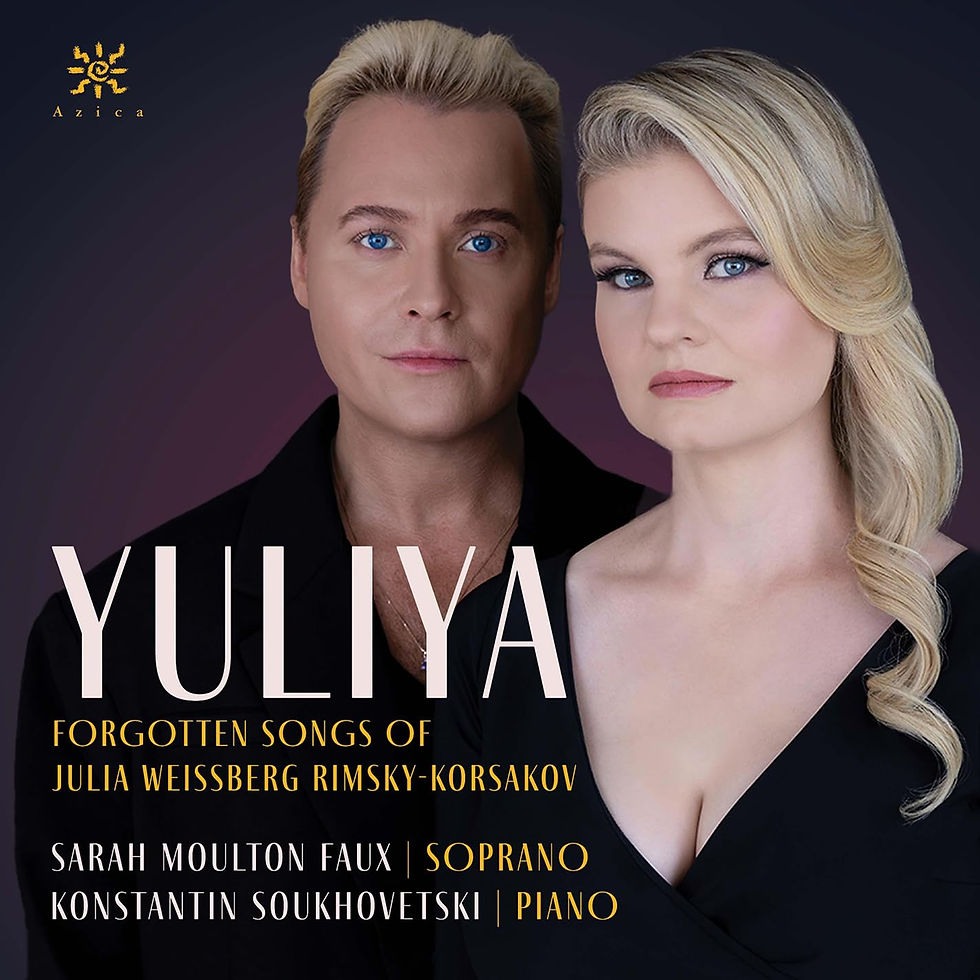Vika goes wild – a classical pianist taps into her passion for rock
- May 27, 2015
- 3 min read
Updated: Jun 11, 2020

“All these people are spread all over the world, which is wonderful, and at the same time it makes it harder to project when organizing live concerts. Musically, they come from very different directions; mostly they are open-minded. I have classical fans, who realize that metal is good music too. And I get metal fans, who realize the piano is not as lame as they thought it might be.”
Vika’s arrangements are one-of-a-kind. While many may think of her as controversial, she manages to transfer music she adores into an idiom of sound that resonates from the instrument she knows so well. In her hands, music that wasn’t written for the piano in any way, sounds as if it was written for it alone; she makes the piano into an incubator, tapping into a new kind of orchestral expression to grow out of it.
Sometimes, her extraordinary choice of style makes her feel a little out of place: “Honestly, I don’t do it to be controversial at all. I just play music I can identify with on the instrument I know best. It happened to be this combination. If I had figured it out earlier in life, maybe I would have picked up bass guitar and would be in a band, not making everybody’s eyebrows raise,” she says, half-jokingly. In fact, Vika tried that too, at a time before she realized that the instrument wasn’t the problem. Even though she successfully finished her piano studies at the Kiev conservatory, partook in the competition cycle, and pursued postgraduate studies in Weimar and Rotterdam, she never felt enthusiastic about a career in classical music. Why did people view a career in music as some sort of an Olympic sport? Should not live experience add just as much value to audience interpretation as a performer’s competition history?
“It wasn’t the first time I had to arrange rock songs. I used to play in a restaurant in Amsterdam, solo and accompanying singers. Piano sheets of pop song arrangements never satisfied me, I always had to change them, add more life to them…but I never thought of it as a career.” She also heard arrangements of songs she loved that did not sound at all like the originals when played on the piano. Deep down, Vika knew the piano was capable of much more than the easy listening covers she was hearing. The occasional arrangements by classically trained musicians, on the other hand, sounded too virtuous for her taste. “Lots of technique,” she describes them: “Pianists would add a lot of unnecessary passages and technical tricks to make it look cool, and to show off…there wasn’t the right feeling for the music. Sadly, there seems to be a lack of respect in the classical world for classical musicians who try themselves in other genres, I never got why people could see this as a “betrayal of good taste.” I could never relate to that snobbish quality in people,” she says. Instead, Vika eagerly turned to metal, without really looking back. “I don’t feel like making debates about it, and I don’t want to know what some people will say about my choices,” she says. “I just want to play music I feel a deep connection with.”

While her arrangements of renowned titles are high in demand, Vika plans to also develop some of her own materials in collaboration with friends. She hopes to release some of these tracks on an album, which she is in the midst of funding via Kickstarter. Vika now lives in Frankfurt, Germany. She still occasionally plays classical music for herself and friends, and she misses performing on a grand piano, which will be a must for the upcoming recording. There are still logistical questions that she is working through for the project, particularly with regard to the metal covers for which she has become known: “It’s logical to want to also record all the songs I love most and feel great about performing, but that depends very much on the copyright issues. With classical music, we never really have to think about this issue, but with arrangements, it certainly becomes a complicated matter,” she confides.
When the limitations of laws and judgment are stripped away, though, there is something essential in all music making; according to Vika, this universal element consists of “emotions in music, energy, and power.” She says, “I think classical music, rock, and metal…these are all just different ways of expressing the same thing. As long as it’s there, it does not really matter to me how it’s being articulated. Music I love was always written by people who felt a lot, went through a lot of pain and suffering…even if they wrote their music 200 years ago, times changed, but these things don’t.”



Comments